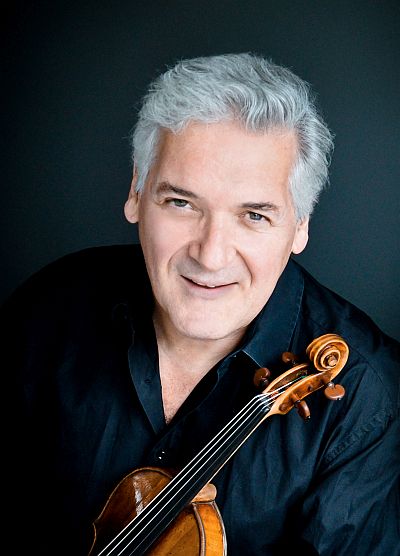 United Kingdom Vaughan Williams, Mozart and Beethoven: Royal Philharmonic Orchestra / Pinchas Zukerman (violin and conductor), Royal Festival Hall, Southbank Centre, London, 28.3.2019. (AS)
United Kingdom Vaughan Williams, Mozart and Beethoven: Royal Philharmonic Orchestra / Pinchas Zukerman (violin and conductor), Royal Festival Hall, Southbank Centre, London, 28.3.2019. (AS)

Vaughan Williams – Fantasia on a theme by Thomas Tallis
Mozart – Violin Concerto No.5 in A K219
Beethoven – Symphony No. in C minor Op.67
The role of a virtuoso soloist playing standard repertoire concertos in the great musical centres of the world was not ultimately one that Pinchas Zukerman wanted to continue, so he wisely diversified his activities into chamber music performance, playing the viola, conducting and teaching. This change of activity has been very much to the good in at least one direction, since the risk of staleness creeping into his playing as a now fairly occasional soloist has been banished.
As a Mozart conductor he showed his credentials in July 2014 at Cadogan Hall, when he gave performances of the last three symphonies that had an old-fashioned expressive quality rather in the style of Sir Thomas Beecham. The results then were highly appealing to all but dedicated followers of period-style performance, and the same qualities now informed his performance of the Mozart concerto. He produced playing of supreme technical accomplishment which had the most appealing elegance, warmth and beauty: it was rich in expression but Mozart’s classical lines were never disturbed. Tempi were well-judged throughout the work, and the orchestral playing was superlative both in tutti sections semi-conducted by the soloist, and in accompanying passages where the leader Duncan Riddell directed his colleagues clearly and adroitly.
Many Mozartians would now be outraged by Constant Lambert’s 1930s motoring analogy when he suggested that Mozart was a four-cylinder composer, but Beethoven was a composer of six-cylinder works. Yet the quotation came to mind during Zukerman’s performance of the latter composer’s Fifth Symphony. Where his Mozart had been richly satisfying there were elements missing in his Beethoven. One of these was sheer strength of utterance: the playing had a pleasing naturalness of communication and stylistically everything was in place, but the emotional temperature always remained rather low. Not even the old-fashioned doubling of trumpets and horns from two to four of each increased anything other than volume. The performance had a feeling of a tour through the work led by an expert, authoritative and imperturbable guide.
The concert had begun with Vaughan Williams’s Tallis Fantasia. Here Zukerman placed the sub-group of nine players behind and partly to the left of the main string ensemble, in the orchestral stalls, rather as the composer prescribed, and the antiphonal effects written into the score thus registered very effectively. The performance was beautifully shaped and managed by the conductor, whose control of expressive ebb and flow was perfect. The work’s emotional climax towards its end had just the right degree of passion, and the quiet ending itself had an affecting quality of elevated purity. Zukerman’s insight and skill were made manifest to great effect through the admirably warm, deep-toned playing of the RPO’s various string sections.
Alan Sanders